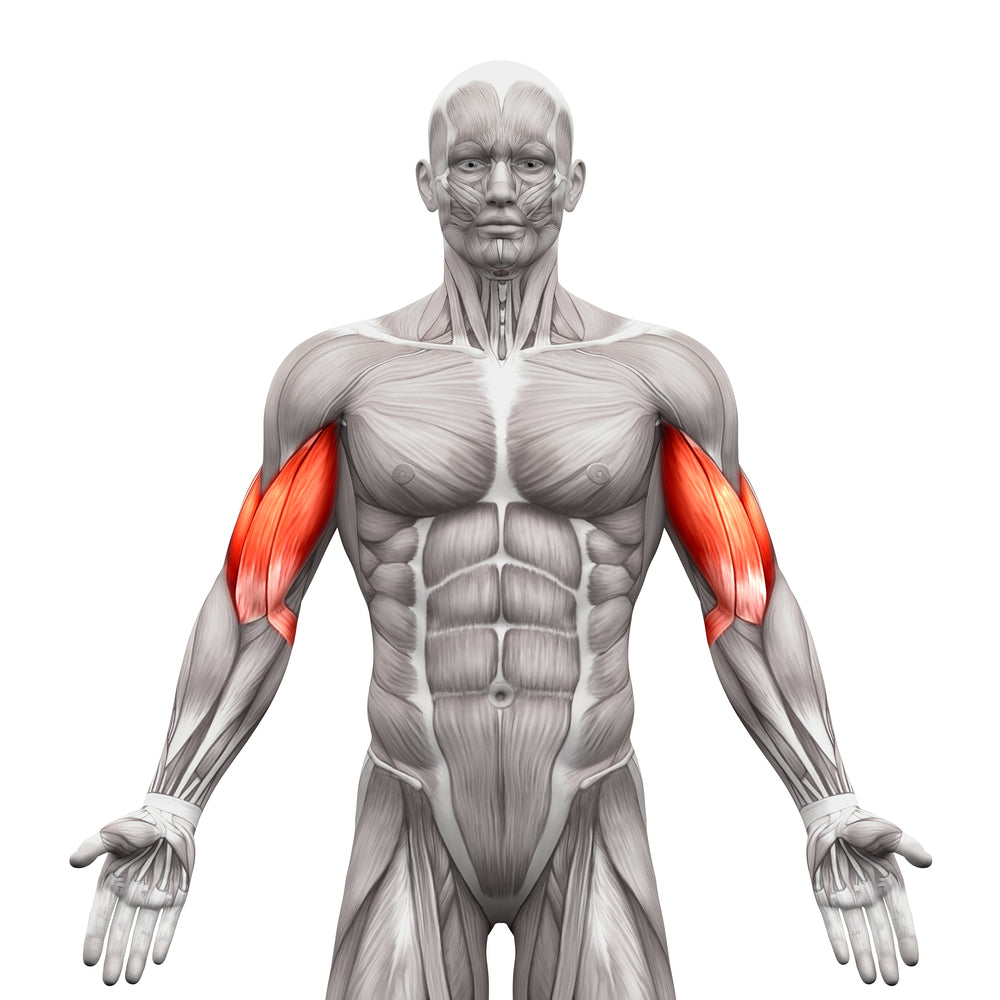While it’s not common for athletes to use bench pressing to work the biceps, you might feel a burn in your upper arms afterwards.
You might also notice some growth in them, even if you haven’t been doing arm-specific exercises as well.
Let’s face it, big biceps are something lots of us chase after. Even athletes who focus on performance rather than aesthetics would secretly like bigger biceps.
So, will using the bench press in your workouts actually make it happen? Built for Athletes takes a look.
Biceps Are Not A Primary Muscle InvolvedThe primary muscles involved in the bench press are the pectorals, the anterior deltoids (located in your shoulders) and the triceps. That’s why bodybuilders tend to use bench pressing on chest and shoulder days.
The biceps are one of the secondary muscle groups used. They play a role as a dynamic stabiliser and are most active during the lowering phase of the movement.
That’s why even though your biceps aren’t a primary muscle that’s being targeted, you might still feel they’ve been worked afterwards. The sensation is intensified if you’ve been doing some exercises that engage the biceps more beforehand.
However, with the biceps not being a major muscle group contributing to the movement, you’re unlikely to get considerable growth from the bench press unless you are fairly untrained.
If your goal is
bigger arms, you’re better off focusing on exercises that engage the biceps as a primary mover, such as bicep curls, chin-ups or hammer curls.
How To Maximise Bicep Growth From Bench PressIf building bicep strength and size is one of your key training goals, and you want to include the bench press in your workouts, there are some things you can do to maximise bicep growth.
Try concentrating on the first phase of the movement when you are lowering the bar to your chest. This is when your biceps are most active. Try to lower the bar slowly so you increase the time under tension, which is linked with increased atrophy and strength improvements.
You can also use dumbbells instead of a bar, because this increases the demand on stabilising muscles. The biceps primarily contribute to the bench press movement by acting as a stabiliser, so will be worked more if you make the exercise unilateral.


Share:
How To Bench Press Correctly To Maximise Strength
What Can Athletes Learn From A VO2 Max Test?